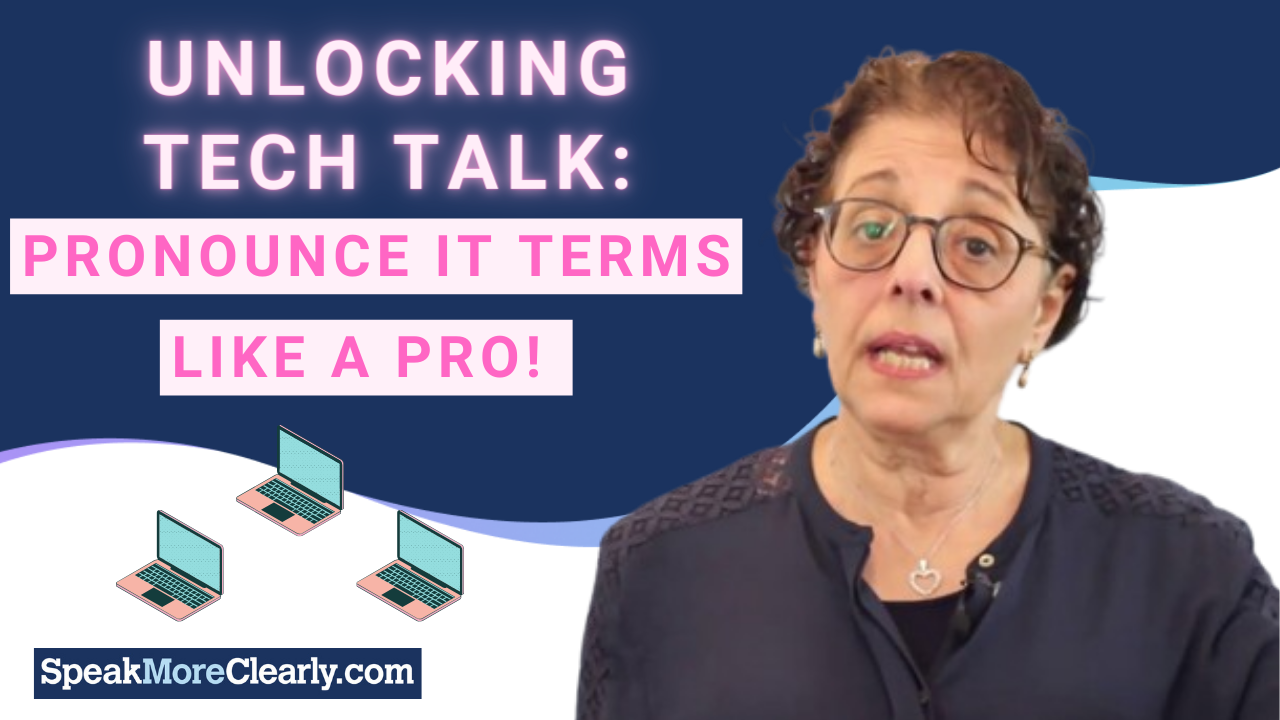

Blog
Do you want to improve your English communication skills?
Learn how to pronounce American, Australian and British English words from our expert trainers.
Read on for enjoyable and expert tips you can share with your peers, friends and family.


10 Tech Words – Pronounce Correctly in English
10 Tech Words – popular IT Terms. How To Pronounce Correctly In English Do you pronounce these Ten IT Terms Correctly in English? Hi, from Speak More Clearly! Many

Singing With An American Accent Versus Speaking With An American English Accent
Singing With An American Accent Versus Speaking With An American English Accent Why you can sing with an American English accent, but it’s harder to speak with one? Hi,

Accent and Identity: Navigating the Personal Journey of Speech
Accent and Identity: Navigating the Personal Journey of Speech Accent Modification – How are your Accent and Identity Related? Hi, it’s Ellen here from Speak More Clearly! There’s often

Speak More Clearly Instantly (in Just 3 minutes a day)
Tips to Speak More Clearly, Instantly, with a British Accent Hi from Speak More Clearly! We are glad you’re here to learn about a British English Pronunciation tip that

5 Mistakes People Make When Learning English
Here are 5 mistakes people make when learning English: 1. I’ll work on my English pronunciation after I learn English. Often people say this when they start learning English. Then

5 Unusual New Year’s Resolutions For American Pronunciation Practice
5 Unusual New Year’s Resolutions for American Pronunciation Practice Hi, it’s Ellen here from Speak More Clearly! In this video, we’re going to practice speaking clearly with an American

Learn The American Accent From The Christmas Song – Jingle Bells
Learn The American Accent From The Christmas Song – Jingle Bells Hi, it’s Ellen here from Speak More Clearly. One of the most common Christmas songs played all over
5 Iconic British Words Used In Everyday Speech
5 Iconic British Words Used In Everyday Speech Hi from Speak More Clearly, it’s Maggie here! Great you are here to learn about five iconic British words that are